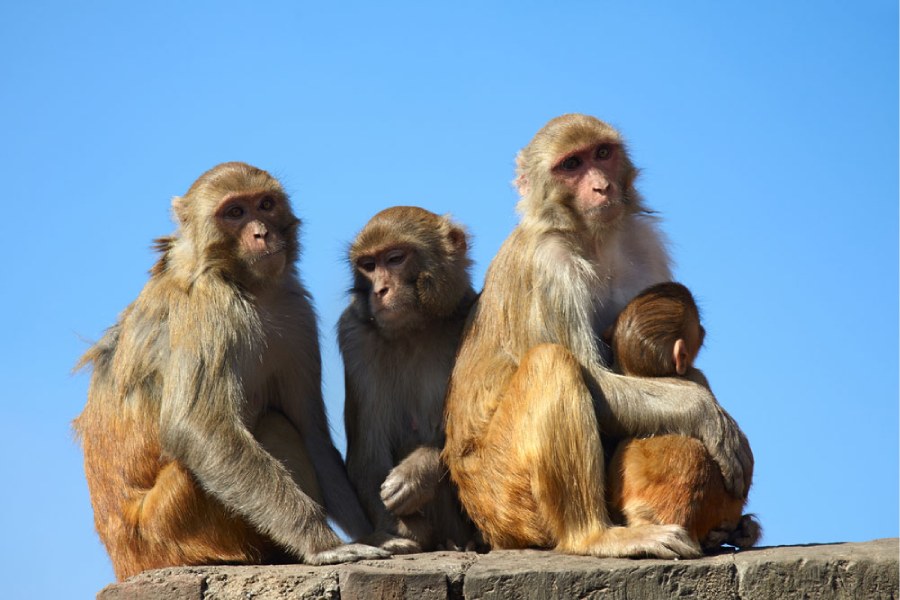The Sikkim government's Forest, Environment and Wildlife department has said that feeding of monkeys or improper disposal of food waste will be treated as an offence and violators will be fined Rs 5,000.
It said that monkey (Macaque species) is a protected species, and feeding it is strictly prohibited under the Wildlife (Protection) Act, 1972 and the Environment (Protection) Act 1986.
The Chief Wildlife Warden of Sikkim, Sandeep Tambe in a public notice dated August 19 said "This is to highlight an important matter that concerns the safety and well-being of all of us. Human feeding of monkeys (Macaque species) and improper management of food waste has resulted in unnatural growth in their population.
"As a result, residents in urban and rural areas are faced with increased instances of human-monkey conflict, which has now grown into a public health and safety issue. It is essential to recognize that feeding them and improperly disposing food waste process risks and concerns." The notice also said that monkeys fed by humans lose their sense of fear and have now learnt to "associate food with people" and they are attracted and slowly become aggressive.
Monkeys are wild animals and their behaviour can be unpredictable, feeding them encourages them to approach humans, increasing the risk of bites or injuries, especially to women and children. Also, transmission of zoonotic disease from primates to humans and vice versa is another risk.
Feeding monkeys can create an unsanitary environment, leading to the accumulation of waste and attracting pests, which can adversely affect the hygiene, the notice said.
It said when food becomes readily available, instead of spending their time foraging in forests, these macaques visit offices, homes, religious places, supermarkets and shops hoping to get food from humans.
Human food products are calorie-rich and an easily digestible source of food, however, these foods elevate stress levels and increase inter-group aggression. Hence, providing food to monkeys can disrupt their natural feeding patterns and behaviour.
Except for the headline, this story has not been edited by The Telegraph Online staff and has been published from a syndicated feed.











